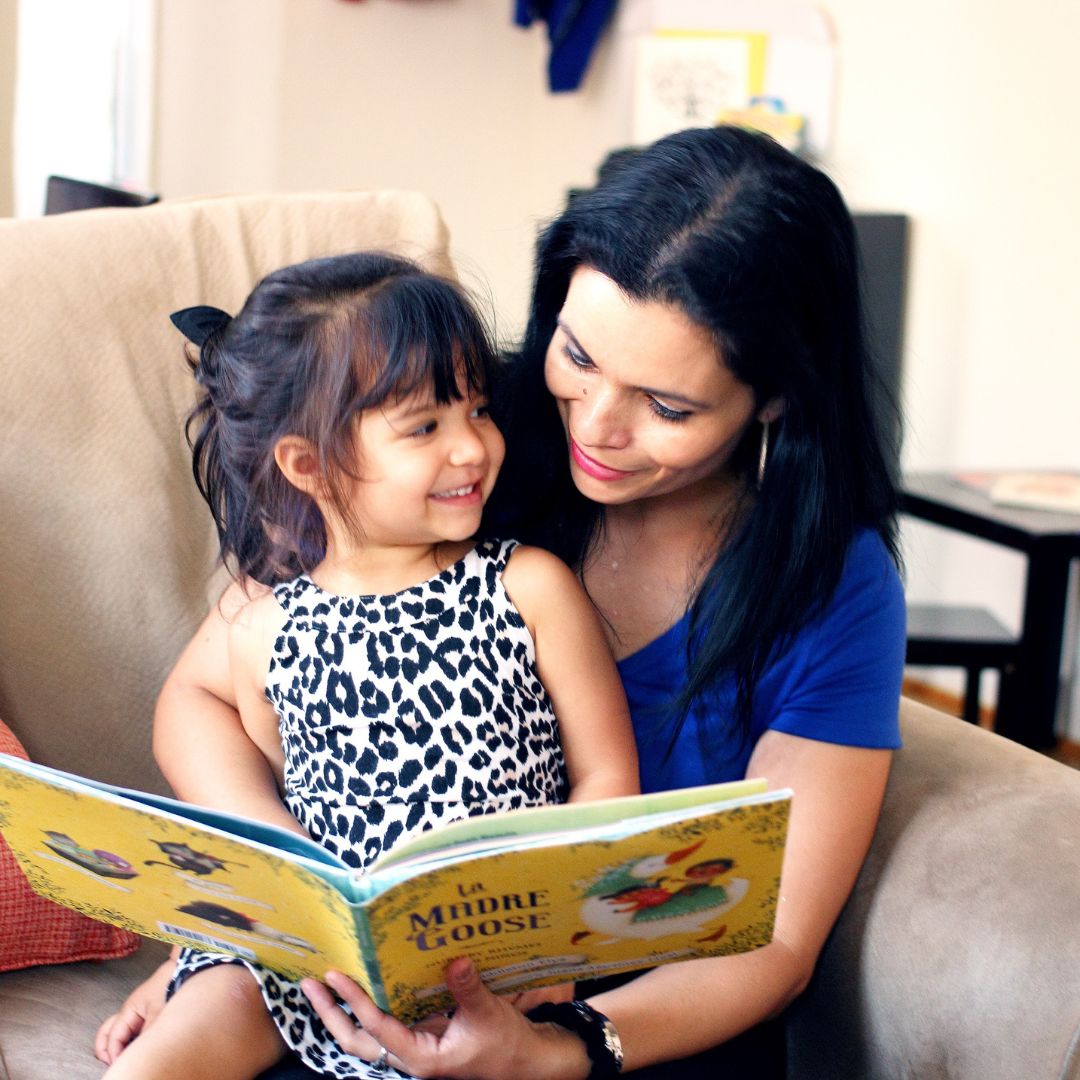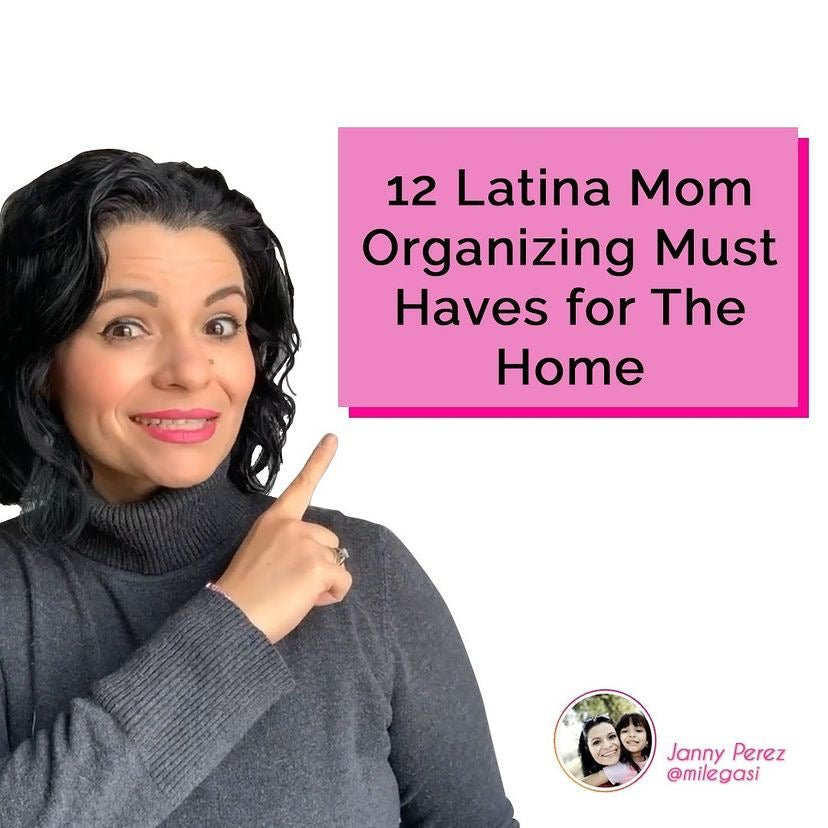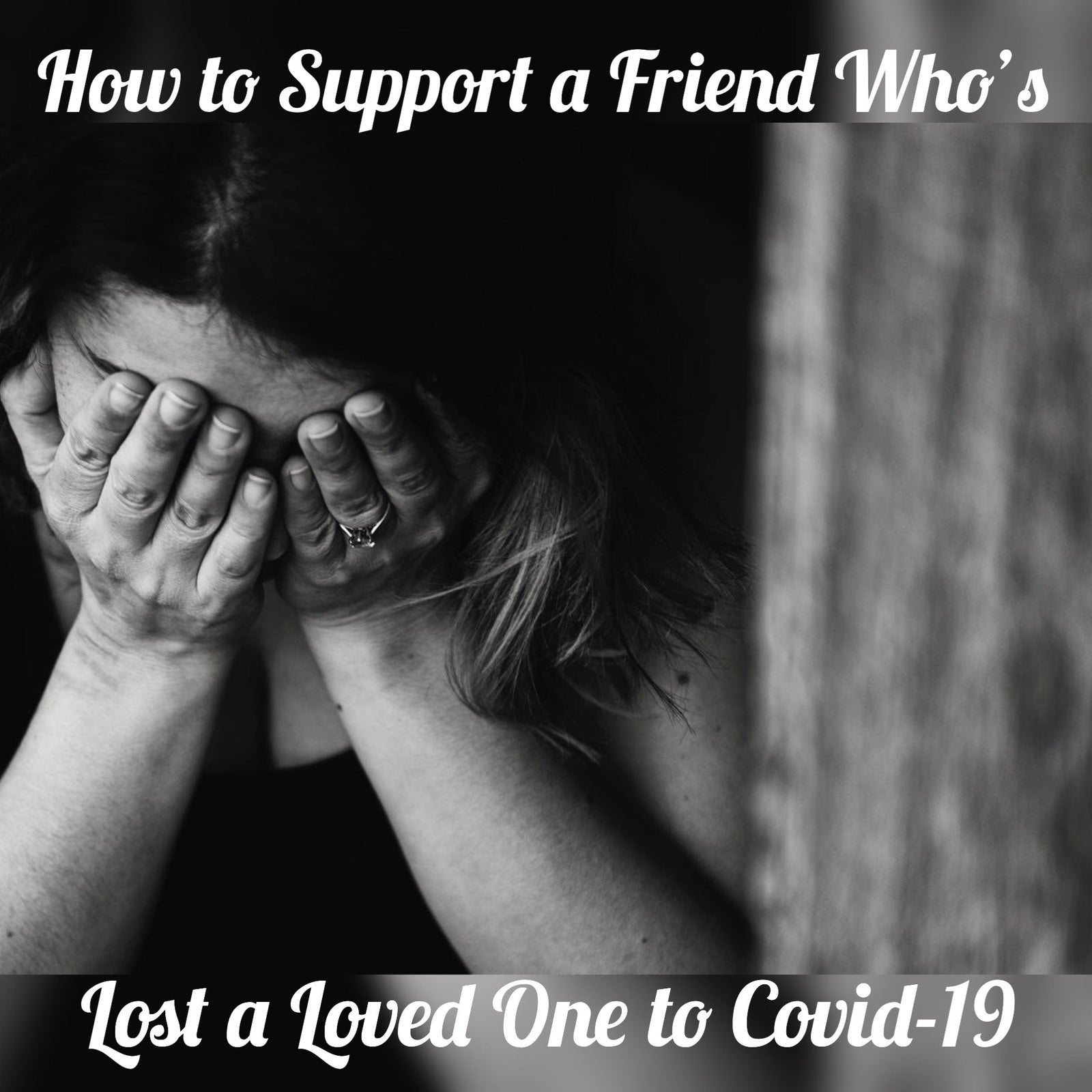
"Mami, are you happy?" Victoria asks. I tell her, "Yes, mama, I'm so happy. These are Happy tears because I have my family, you, a roof over my head, food, clothes, water, my health...I am rich."

In times of grief and despair, we need to remember that our children see and absorb everything. How do WE deal with difficult situations and set an example for them?
7 Tips To Help Moms Deal With Difficult Situations
1. Don't suppress your feelings. If you cry in front of your child explain to them why you are crying in a way that they can understand. "Yes, mija, I am sad. It's ok to be sad, just like sometimes you get sad and cry and then you feel better. I will also feel better. I am ok." If you simply say, "Mami is fine," without any further explanation, you may be unknowingly teaching your child that it's not ok to express your feelings. As Latinas, many of us are taught that, "Las niñas no chillan," o "No puedes ser tan chillona" (Don't be such a crybaby). Don't get me wrong, whining is different, but openly expressing your feelings is not a bad thing.

These are my absolute favorite children's books about feelings:
2. Ensure to them that THEY are safe. As parents, we are the foundation and rocks of our kids. They need to know that that foundation is solid. Express to them that they are safe. According to Dr. Nancy Alvarez, frequently viewed on Despierta América, "La seguridad la dan mamá y papá, entonces usted tiene que mantener la calma, hablarle claro, decir 'estos so fenomenos naturales...pero no te preocupes todo va a estar bien, tu estas seguro aqui conmigo.'" ("Security comes from mom and dad, so you have to stay calm, talk clear to them, say 'these are natural occurrences...but not to worry, you are safe with me, everything will be ok.'")
While it's ok to cry and express your emotions if kids sense that there is an instability in the foundation, regardless if you say, "I'm fine," they will know. This will make them feel unsafe and they may express their emotions by acting out, having nightmares or night terrors, fear, sadness, or anger.

3. Shield them from the news. According to Dr. Nancy Alvarez, "Los niños pequeñitos no tienen un sentido logico hasta despues de los siete añitos y todo eso ellos lo magnifican. Acuerdate que su mundo es fantástico entonces cuando ven eso (las noticias), les entra terror porque dicen 'me puede pasar a mi'...evitar todo esto (las noticias) porque despues por la noche vienen las pesadillas, los ataques de pánico porque tiene una asiedad que no la puede manejar." (Young children do not have a sense of logic until after 7 years of age and they magnify everything. Remember that their world is fantastical therefore when they see this (news), they get terrified because they say 'it can happen to me'...Avoid all of this (news) because then at night come nightmares, panic attacks because they have anxiety that they don't know how to manage.")

4. Tune into your grief. According to Nesreen Mahmoud, grief recovery coach at Harbor Light Coaching, "Limit your own exposure to media. We all have a threshold and children have a lower threshold. Learning to honor our threshold is very helpful. Also implementing activities such as meditation, yoga, and deep breathing that can lower pressure helps reduce the feeling of being overwhelmed. Finally, practicing trust. Trust can be a higher power, belief in yourself, our children, and future generations. Knowing that the way you raise your child will empower them to make a difference in the world. Practicing trust can help people in a number of different areas. It can help reduce the frequency and severity of feeling overwhelmed and help reduce the feeling that you have to manage and control everything."

If you are experiencing depression get help. Families for Depression Awarenessand or during an emergency the National Suicide Prevention Lifeline1-800-273-8255 (1-800-273-TALK). Para ayuda en Español llame a la Red Nacional de Prevención del Suicidioal 1-888-628-9454.
5. Instill a sense of spirituality or belief system. Politics and religion are very touchy subjects and I respect everyone's beliefs because we live in a great nation where you can believe in anything you want. Personally, I like to describe myself as an open-minded Catholic. My husband isn't much of a believer and that's ok, but I want my daughter to believe in SOMETHING. Just like I cry, I Pray. I pray with my daughter for many reasons, but mainly to teach her about the power of believing in something bigger than herself and to teach her about thinking about other's needs.

6. Gratitude goes a long way. Many experts say that people who express gratitude on a regular basis are happier. When you openly express what you are grateful for it helps your children develop empathy & compassion for others. You are also setting an example and a foundation for THEM to be happier in life. Check out an awesome gratitude experiment video:
7. Get your mind off of things. It doesn't mean that you need to turn off your emotions, ignore, or suppress them. It means to turn off the TV, go for a walk, get some fresh air, go to the gym and release feel-good endorphins, take a relaxing hot bath, take a time out for yourself so you can regroup and don't feel guilty about it!

It's a difficult time for all of us. One day at a time, one moment at a time will help us get through this. You got this mama!


















Leave a comment (all fields required)